
Author | Uncle Cat
It’s hard to imagine that the live broadcast of goods that the big coffee was ashamed of two years ago has now become a common practice in the entertainment industry.
Especially in 2021, the stars who stayed in the live broadcast circle became more and more bottomless.
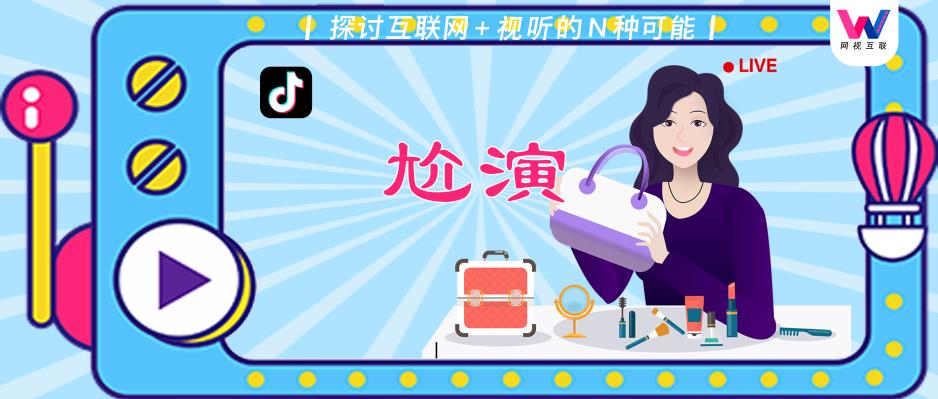
The star’s job was originally acting, but now the main battlefield of many stars is no longer movies and TV series, but has become a live broadcast room with goods.
Moreover, the "cannibalism" of stars with goods is sometimes uglier than that of online celebrity.

The stars performed in the live broadcast room
On November 27th, a well-known actress surnamed Huang was in the live broadcast room, holding a Hetian jade necklace with a price of 1,280 yuan and sincerely shouting: "299 yuan."
The merchant was incoherent with anger: "Do you know what this is? This is Hotan Jasper, and this is the ceiling in nephrite! This is Russia’s No.7 mine, and No.7 mine was extinct in 2008 … "
The actress surnamed Huang didn’t speak, but slowly touched the jade pendant of the necklace. The merchant quickly said, "If you really want to sell 299 yuan, I really can’t put the bill. Well, I can only put 300 bills at most."
Actress surnamed Huang: "Then I think you should be cheaper."
The actress surnamed Huang responded with a hundred words, and the netizens in the live broadcast shouted for the price. The actress surnamed Huang looked at the screen and said with enthusiasm: "Did someone say 199 yuan? I think some people say 118 yuan, ok, just 118 yuan! "
Embarrassed, at this time, no one on the screen shouted for 199 and 118, but 9.9 yuan, 29 yuan and 99 yuan.
Finally, this necklace is priced at 118 yuan, and it is also bought for one get one free. After it is put on the shelves, it is not limited to 300 orders, but you can buy it at will.
Obviously, this is a good play starring actress Huang and merchants. The so-called asking netizens to bid is just a process atmosphere.
The price reduction from 1280 yuan to 118 yuan is really arbitrary. Merchants are shouting limited, loss-making, and subsidies. In fact, they are all fooling netizens to place orders.
In fact, there are more and more stars who "perform" in the live broadcast room like actress Huang.
Live broadcast with goods has become a mirror for all kinds of demons.Originally a paradise for online celebrity anchors, it has now been seized by major stars.
Even Pan Changjiang, a venerable elder, stepped into the muddy water of live broadcast with goods after staged a slapstick farce of "the turn of the Pan Ga", which was repeatedly questioned, but it was out of control, and was complained by netizens that his last days were in jeopardy.
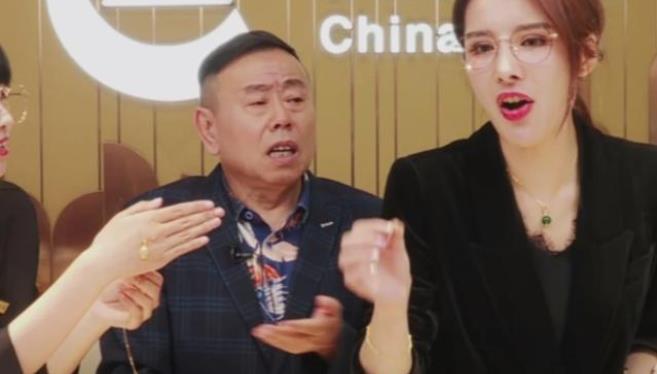
Even more embarras,Those "routines" with goods, which have long been played badly by online celebrity people, are now grounded and learned by the stars.
This has also led to the fact that although the stars "performed" very hard in the live broadcast room, the effect is getting worse and worse, the audience is getting worse and worse, and the effect of bringing goods is getting worse every day.

The "script with goods" is the same, which is a great test of star acting.
The biggest problem that makes people embarrassed is that most stars’ "scripts with goods" are the same.
Netscape Internet (ID: WXS360) found that,Among them, there are two scripts with goods, which are repeated by stars in the live broadcast room.Because of too many performances, it is a great test for actors’ acting skills.
1. Performance quarrels with merchants
The flow of this script is:
1) The first scene: the merchant quotes, the anchor is not satisfied, and bargains on the spot;
2) The second act: the merchant sells badly, tells the selling point of the product and refuses to reduce the price;
3) Act III: The anchor gets angry, loses his mind, directly releases the fracture price, and says that he subsidizes the fans;
4) The merchants were forced to meet the anchor conditions and promised limited supply;
4) Ending: The anchor called on fans to place orders quickly.
The script with goods has been performed by countless online celebrity for many times, and it is still imitated by many stars. How many netizens into the pit can be fooled now, which not only tests the anchor’s acting skills and cooperation with the merchants, but also needs to be followed up in a more intense and bottomless way.
Although we all know that the anchor and the merchant signed a contract long before the cooperation, it is impossible not to talk about the price of the goods. However, in the process of quarreling and bargaining, the actors still have to be full of emotions, and the performance should be true and full of tension, bringing a strong sense of substitution and impact to netizens.
2. Pretend to mark the wrong price.
Nowadays, there are goods in the live broadcast room, and the frequency of wrong price is getting higher and higher. So that netizens ridiculed that there is no star who missed the price, and it is not a good star with goods.
The routine of "marking the wrong price" is most used by female stars when they bring goods, and some even mark the wrong price several times in a live broadcast.
The success of "marking the wrong price" mainly depends on the "performance" after the anchor marked the wrong price.Successful "acting skills" usually shout "The price is wrong, the price is wrong, so don’t place an order, I’m going to pay for it …", while acting in a hurry and at a loss.
At this time, the more the anchor is at a loss, the harder netizens place orders, and the IQ tax will be quiet.
Under such circumstances, acting-style live broadcast, script-style selling of goods and other means of curiosity and speculation are flooding the live broadcast rooms of various anchors, including scripts and words, and even the commodity pricing and price reduction are strikingly similar.
When Tik Tok and Aauto Quicker were opened, all the live broadcast rooms became show shows with goods, and the anchors were performing hard and repeatedly under the same script.

The live broadcast bonus disappears, and the industry urgently needs a "new script"
In 2020, the first year of star live broadcast was ushered in with the help of the epidemic. Tamia Liu, Michael Chen, Yuqi Zhang, Stephy, Li Xiang, Wang Han, Eva Huang, Ye Yixi, Yang Kun, Li Xiaolu, Xue Zhiqian … Many young stars have tried live water to bring goods, and sales of hundreds of millions have become routine operations.
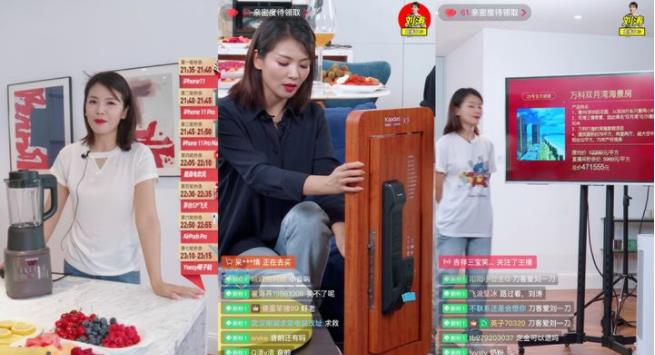
In a year, the live broadcast bonus disappeared. The sales myth of stars, accompanied by constant controversy, overturned several times.
9.9 yuan, a live studio in Jordan chan, sold a gold bar and an autographed photo. As a result, the fans received a golden plastic piece, and the autograph was only printed matter.
Pan Changjiang, Wang Xiaoli, and Xie Mengwei (Gazi) have all sold branded wine with the name of Maotai Town in the live broadcast room. This kind of wine can’t be said to be fake wine, but the name of "Maotai Town" and "Xinghua Village" is somewhat suspected of fooling consumers.
In fact, more and more stars have "killed" into the wine, jewelry and jewelry industries because of the high profits and the inability to uniformly estimate their values. Similar rollover incidents are not uncommon.
Some stars gradually fade out of the live broadcast circle, while some stars do not care about their feathers and the trust of fans in the live broadcast room, and frequently consume the popularity and word of mouth saved by their own entertainment circles.
In the Tucao Conference, Viya made a slightly sarcastic speech:"When the stars have what good, you see these stars, not to live? The destination of stars is to bring goods. "
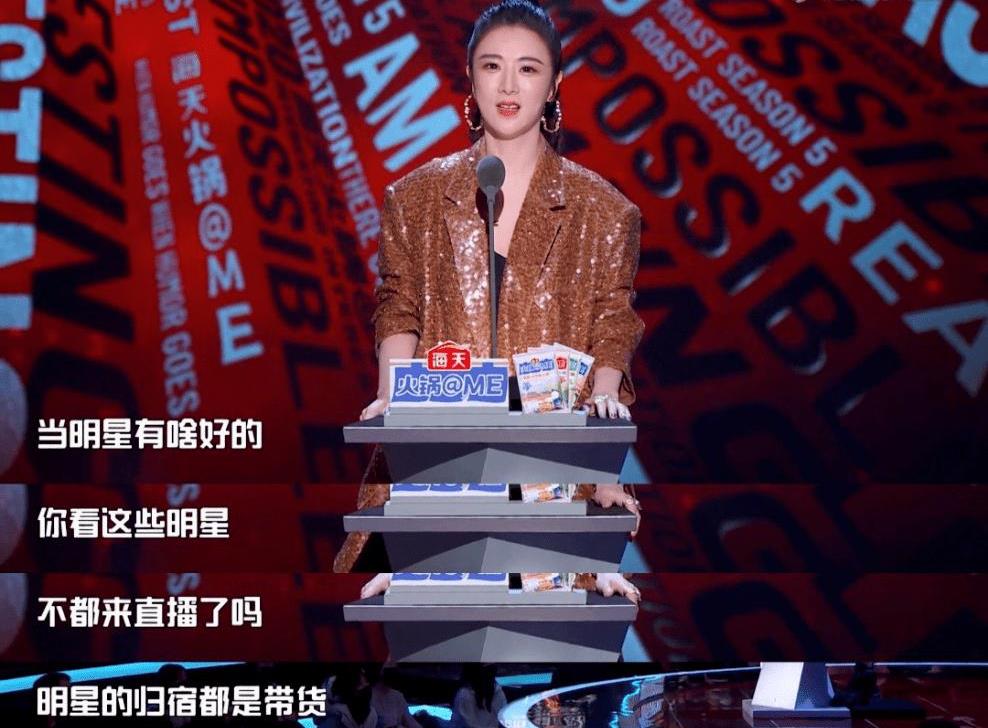
Hao Lei also said that the live broadcast diverted the stars in the film and television circle. "Thank you very much for the live broadcast. Some people don’t have to go around this detour and must be actors."
At present, the main positions of the first-line strength stars who are getting along well in the film and television circle are still film and television dramas, and they rarely set foot in live broadcasts, such as Bo Huang, Jason Wu, Chen Sicheng, Shen Teng, Ge You and Chen Daoming. Most of the people who have been in the live broadcast circle for a long time are traffic stars, female stars and outdated stars.
An interesting phenomenon is that,If you can’t pick a good script in the film and television circle, it is difficult to pick a good script in the live broadcast circle, and even you can only repeat the bad script.
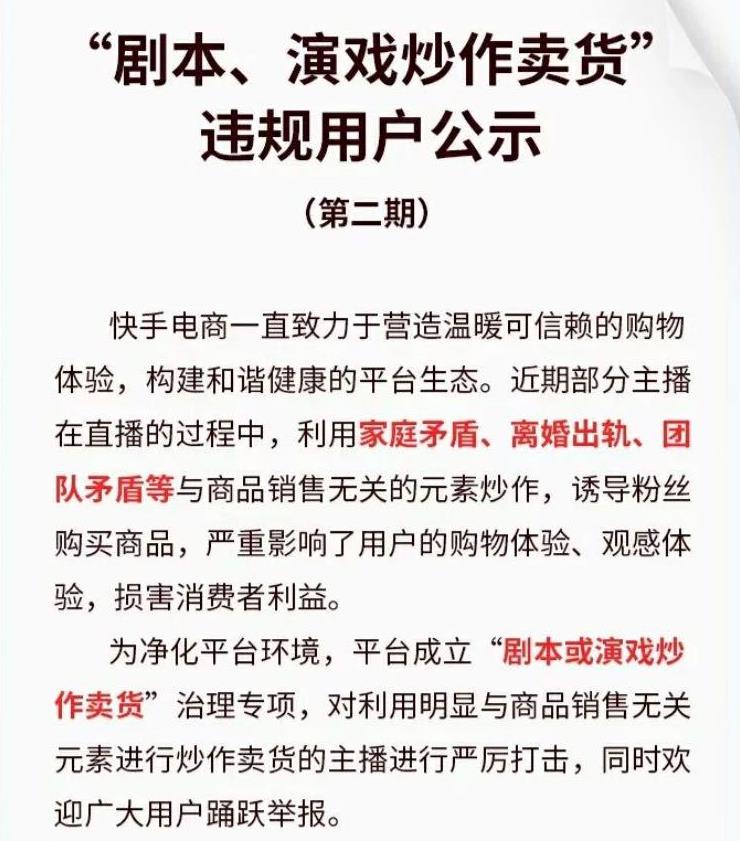
Even if it is a live broadcast, most stars have no originality and recognition ability. Online celebrity, the head of the company, is still developing a new script, and most of the stars have just embarked on the "homogenization" routine under the planning of the merchants. But when the "scripts" become more and more similar and the hype routine becomes more and more obvious, how long can the audience’s freshness be maintained? How long can the platform tolerate?
There is nothing wrong with the live broadcast, and it is understandable to have a script routine, but the script should also be innovative with the times, and the live broadcast should be more sincere and less deceptive.
·